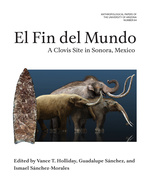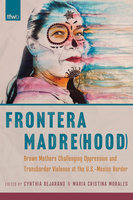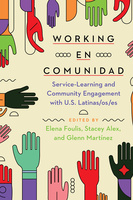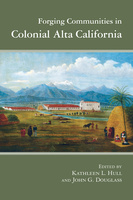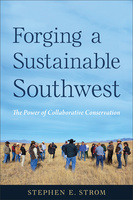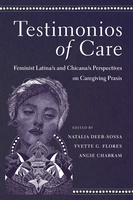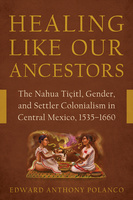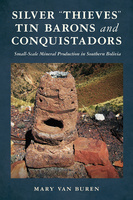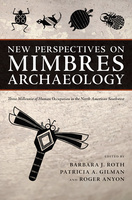The University of Arizona Press is the premier publisher of academic, regional, and literary works in the state of Arizona. They disseminate ideas and knowledge of lasting value that enrich understanding, inspire curiosity, and enlighten readers. They advance the University of Arizona’s mission by connecting scholarship and creative expression to readers worldwide.
El Fin del Mundo
A Clovis Site in Sonora, Mexico
El Fin del Mundo: A Clovis Site in Sonora, Mexico provides a full report on the site of the first documented Clovis association with gomphotheres in North America.
Frontera Madre(hood)
Brown Mothers Challenging Oppression and Transborder Violence at the U.S.-Mexico Border
Reflecting on the concept of frontera madre(hood) as both a methodological and theoretical framework, this collection embodies the challenges and resiliency of mothering along both sides of the U.S.-Mexico border. More than thirty contributors examine how mothering is shaped by the geopolitics of border zones, which also transcends biological, sociological, or cultural and gendered tropes regarding ideas of motherhood, who can mother, and what mothering personifies.
Working en comunidad
Service-Learning and Community Engagement with U.S. Latinas/os/es
This edited volume showcases examples of service-learning practices and pedagogies for working alongside Latina/o/e communities. The contributors tackle three major themes: ethical approaches to working with Latina/o/e communities within language courses and beyond; preparing Latina/o/e students for working with their own communities in different environments; and ensuring equitable practices and building relationships that are mutually beneficial for students and community. Written by scholars, practitioners, and researchers, the collection’s six chapters offer case studies of how to carry out service-learning work that is culturally informed and provides a guide to help others do the same.
Forging Communities in Colonial Alta California
The influx of Spanish, Russian, and then American colonists into Alta California between 1769 and 1834 challenged both Native and non-Native people to reimagine communities not only in different places and spaces but also in novel forms and practices. The contributors to this volume draw on archaeological and historical archival sources to analyze the generative processes and nature of communities of belonging in the face of rapid demographic change and perceived or enforced difference.
Forging a Sustainable Southwest
The Power of Collaborative Conservation
Forging a Sustainable Southwest is the story of how diverse groups of citizens in the Southwest have worked collaboratively to develop visions for land use that harmonize ecological, economic, cultural, and community needs.
Testimonios of Care
Feminist Latina/x and Chicana/x Perspectives on Caregiving Praxis
Healing Like Our Ancestors
The Nahua Tiçitl, Gender, and Settler Colonialism in Central Mexico, 1535–1660
Accompaniment with Im/migrant Communities
Engaged Ethnography
This edited volume is a collective conversation between anthropologists, activists, students, im/migrants, and community members about accompaniment—a feminist care-based, decolonial mode of ethnographic engagement. Across the chapters, contributors engage with accompaniment with im/migrant communities in a variety of ways that challenge traditional boundaries between researcher-participant, scholar-activist, and academic-community member to explicitly address issues of power, inequality, and well-being for the communities they work with and alongside.
Silver “Thieves," Tin Barons, and Conquistadors
Small-Scale Mineral Production in Southern Bolivia
This book traces the history of Indigenous mining in southern Bolivia from Inka times to the present using archaeological and historical sources. It argues that small-scale mineral production can only be understood in relation to large-scale mining in the context of colonialism and its aftermath.


